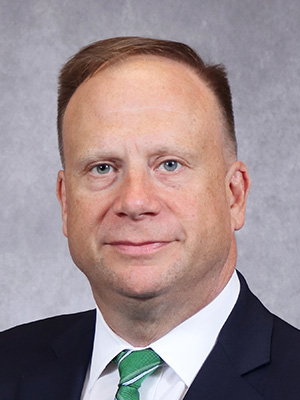Time-tested student support programs will work hand-in-hand with new ones to drive retention and meet our goals.
 With MSU’s Strategic Plan now fully articulated and endorsed by the Board of Trustees, our attention has turned to implementing the programs, policies, and initiatives necessary to meet our strategic goals. Our office is particularly attentive to the bold promise that by 2030 MSU will close the persistence and opportunity gaps on campus to raise its overall graduation rate to at least 86%.
With MSU’s Strategic Plan now fully articulated and endorsed by the Board of Trustees, our attention has turned to implementing the programs, policies, and initiatives necessary to meet our strategic goals. Our office is particularly attentive to the bold promise that by 2030 MSU will close the persistence and opportunity gaps on campus to raise its overall graduation rate to at least 86%.
Our colleagues have been working quickly to build on the foundation that was established three years ago with the Student Success Strategic Plan that we created and finalized just a few months before the pandemic hit campus. Opportunity gaps – the differences in persistence and graduation rates of some subgroups of our students and the overall university average – point us toward the places and the ways in which we can improve the university for every student we welcome to campus.
Closing opportunity gaps will require us to both reform the institution’s policies, practices, and norms to meet all students’ needs and support individual students to learn, thrive, and graduate. Our specialized support programs – like Migrant Student Services, TRiO, the Resource Center for Persons with Disabilities, and the many bridge and access programs in colleges across campus – provide direct-to-student academic and social support that is tailored to each student’s needs. These programs have long been central in our pursuit of providing an accessible and equitable educational experience at MSU, and they will be central to our pursuit of our strategic goals of closing opportunity gaps and reaching at least an 86% graduation rate.
We recently launched a new support program specifically designed to support first-generation students at MSU. More than 1 in 5 MSU students are first-generation students, as are hundreds (likely thousands!) of our faculty, staff, and administrators. “First-gen” is a badge many of our colleagues wear with honor because they know that they faced and overcame a variety of obstacles unique to being the first member of their family to earn a bachelor’s degree.
The new program is FLI: First-Generation Leadership and Innovation. It is supported by a $17.263 million grant MSU received from Martin Vanderploeg, a three-time graduate from MSU. Dr. Vanderploeg believes that large public universities have the ability to make “real impact” because of their size and commitment to access. He says, “They educate the masses and they do it the right way. The balance you get at a large state university—affordability, high-quality faculty, a rich environment for people to grow—is the most valuable educational resource we have in this country.”
FLI has now launched and is seeking its first cohort of students. It is open to all domestic U.S. students, including both Michigan residents and the residents of other U.S. states, who identify as first-generation students. “First-generation” is defined as a student whose “parents did not complete a four-year college or university degree.”
The FLI program offers first-generation students a supportive community of professionals and peers, financial aid and financial literacy assistance, leadership and professional development, peer mentoring, and advising and coaching from a dedicated team of professionals. FLI is part of a larger set of first-generation student support services that allowed MSU to be recognized as a First-Gen Forward institution by the National Association of Student Personnel Administrators and The Suder Foundation.
It will take an intentional and collaborative approach to close opportunity gaps and reach our goal of an 86% graduation rate. FLI and our many other persistence programs around campus combined with our retention reform efforts will help us create a persistence focused structure and ensure we can provide the needed support so that all students can learn, thrive, and graduate.
Feedback and suggestions, especially from the MSU community, welcome at largent@msu.edu.